‘Of course there have been failures’: Zoë Foster Blake on business, beauty and her latest book
Entrepreneur Zoë Foster Blake explains how she balances her career and personal life in a revealing interview.
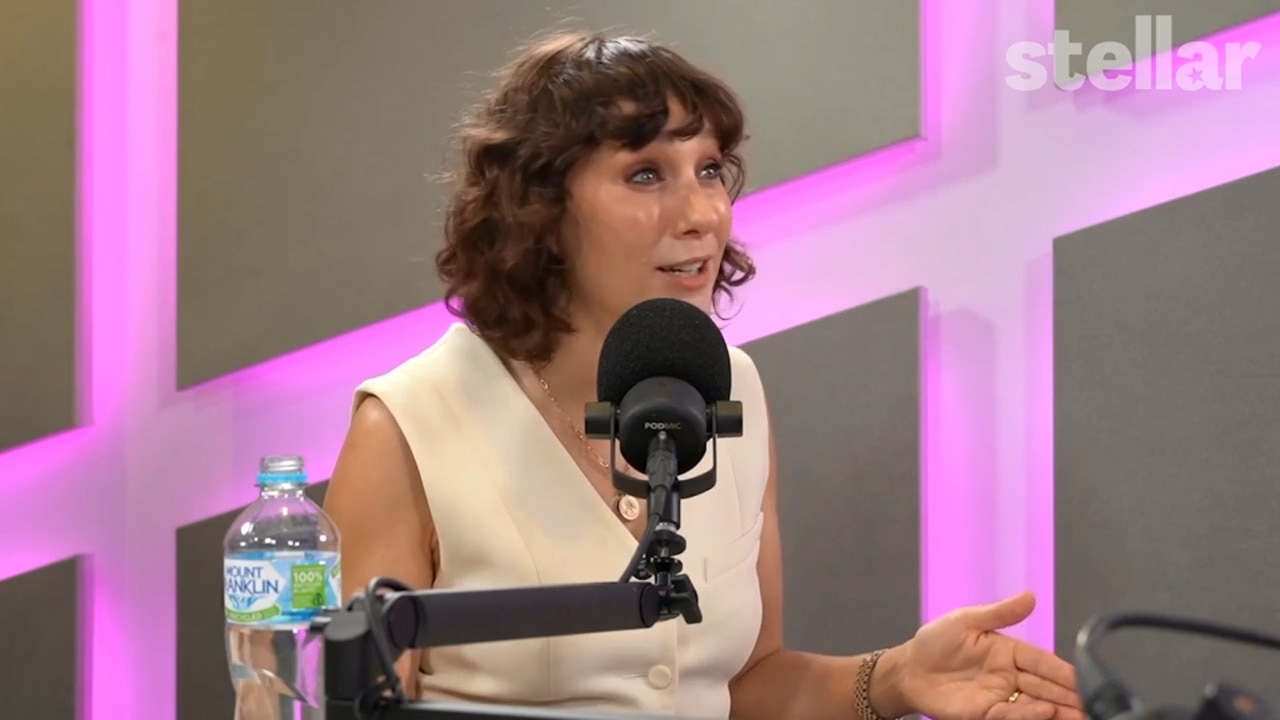
With 17 books to her name, a mega successful beauty brand, a busy media career, and two children with her high-profile husband, life is anything but calm for Zoë Foster Blake.
Ahead of the release of her new novel, the 44-year-old gives the Stellar podcast Something To Talk About a rare insight into how she strikes the balance between career and family, the cost-benefit of her success and how going into business “knowing nothing” turned out to be everything.
Stellar: Your new book, Things Will Calm Down Soon, is your first adult fiction novel in a decade. How many times in the average day do you find yourself saying, “Things will calm down soon”?
Zoë Foster Blake: It will be on my gravestone. It’s the best lie that I reel out all the time, to the point where my husband [comedian, television presenter and podcast host Hamish Blake, to whom Foster Blake has been married since 2012] rolls his eyes because he’s like, “Of course it will. Do you understand that this is just life now? This is the beat of your life.” But when I was writing this character and these moments in my life when I was as busy as her, it was like I had to keep telling myself that, just to get through. You get into that survivor mentality when you’re super slammed, and knowing it will calm down eventually is the carrot to dangle, but most women I know say, “It’s just how we live our life; things will calm down soon.” Guess what? It doesn’t.
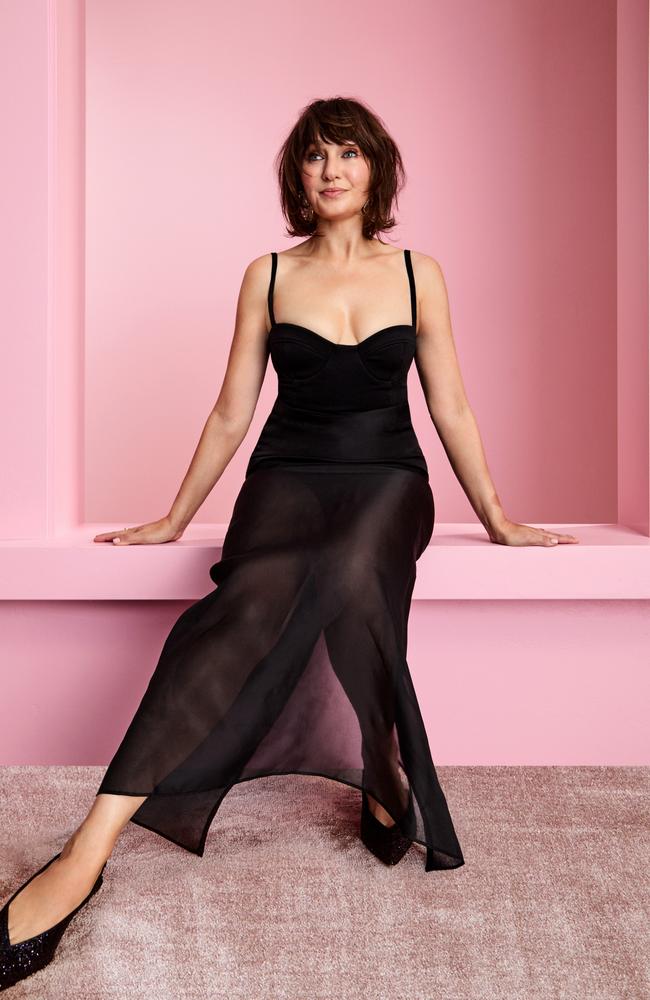
Listen to the full interview with Zoë Foster Blake on Something To Talk About:
Stellar: The main character in your book, Kit, is a single mother navigating the complexities of establishing a beauty business while managing demanding responsibilities. You, of course, are the founder of your own very successful beauty brand, Go-To. Let’s be honest, was that just to cut down on having to do any research?
Zoë Foster Blake: I’m not a researcher. Hand on heart, it’s not my wheelhouse. I’m very good at creating worlds and characters and stories, and fiction is, for me, really fun and liberating and playful. The essence of this book was that I went through a really big thing when I sold half of my business [in 2021, Australian beauty company BWX acquired a majority stake in Go-To for $89 million; in December 2023, Foster Blake and her fellow co-founder Paul Bates bought back ownership for $21.8 million after BWX went into voluntary administration] and that world of mergers and acquisitions and selling, this business world that I hadn’t known about, was sort of thrown at me and I had to get my sh*t together very quickly. I learnt so much because of the brilliant people around me advising, and lawyers, my chairperson, my team, that I felt almost like it was my duty to pay that forward because I went in knowing nothing.
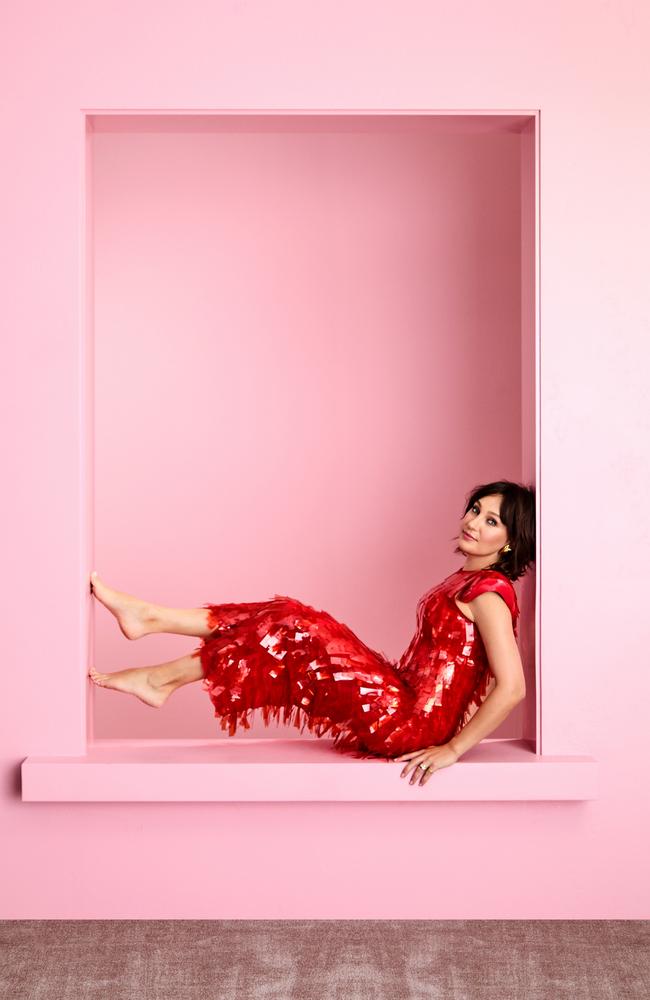
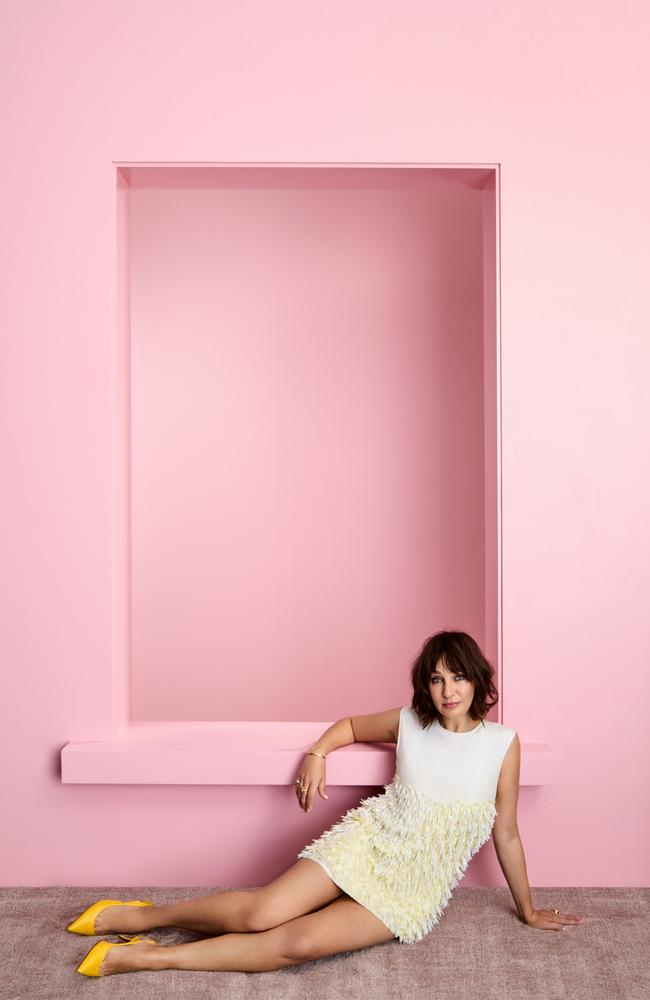
I was a creative, a writer who started a business because I wanted to write copy and make good things and create community, and suddenly I’m in a room with 15 men in suits selling and defending my business against people who are hardwired and trained to cut you down and neg you because they want a better price. I had to grow quickly and learn a lot. I thought if I knew the things I know now, 12 years into business, if I could share that with young or new founders, that would be a generous thing to do, but I didn’t want to write a business book. I have the privilege and the luck to be able to write fiction, so why not create a fictional world?
Even looking at my friendship group, I reckon maybe 80 per cent of them have their own business, and that could be an osteo business or they’re selling clothes or whatever it may be. A lot of them are in this world where they’re like, “Oh, I was thinking about taking investment, but should I? I don’t know how.” So from the whole gamut of start-up right through to exit, I feel like there’s something you can take away from it but, if that’s not of interest, you still get a good story.
You have a lot going on, juggling small children (she and Blake have 10-year-old son Sonny and daughter Rudy, 7), running a business and multiple projects all at the same time. What’s your day-to-day writing process like?
The biggest hurdle was that I finished our first deal, which was selling half of the company, and then signed the book deal and was like, “Great, it’s all fresh. I can write it now, I’ve got time.” And then unfortunately, the people we sold it to went into administration. Very quickly, I went from writing about a deal to being back in a deal at a time when I hadn’t allowed the bandwidth to be on phone calls and in meetings, every week, all week, so that certainly added a complication. It was helpful because I was back in the language and back in those boardrooms, but also confusing because I was trying to write a fictional deal while working out what I was going to do in my real-life deal. It was hard having those two streams running at once. For me, writing is actually a joy. I’ve always said it’s like I have an illicit boyfriend in the office and I keep sneaking away to hang out with him. I put the kids’ dinner down and then I sneak up and just do 10 minutes more and it becomes obsessive almost. It doesn’t feel like work. It’s a true joy and I can’t wait to start again, honestly.
Zoë Foster Blake is the latest guest on Something To Talk About. Listen to the full episode below:
So you’re already thinking about the next fiction project?
Yeah, I am and I’m actively telling myself to stop and not undertake a new project just yet, but [with] a good novel idea, so much of it is the marinating, and that can take months. I always say “I’m not getting a deadline in this project, I just want to write when I want to write” – but if no-one is over me, I won’t do it. I’m absolutely useless without a deadline. My team at Go-To knows that all too well. I ask them to give me fake deadlines … Hamish and I are the same. We laugh about how we’ve had a month to do it and then we do it in the last 24 hours. It’s terrible. I’ve set this thing up with our kids’ homework: M&M Monday. So on Monday after school we try to get all the homework done in that one or two hours, and I give them some treats to get them through because I don’t want to be the nag for the rest of the week – and I know they’ll do it Thursday night if they’re given the chance. I try to instil that in them: “Get it done early, then you can chill.” It’s not really working.
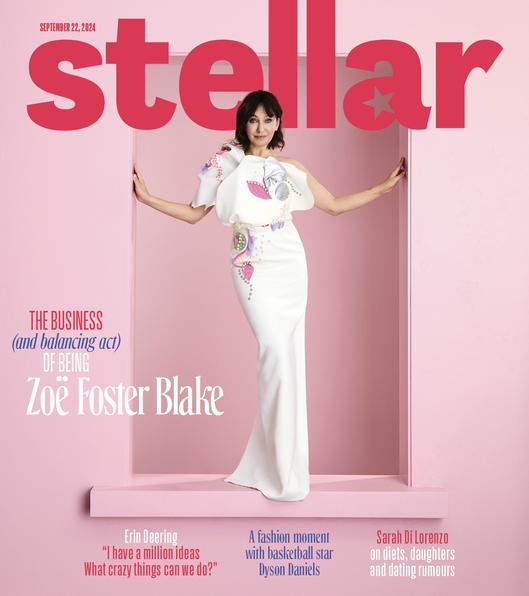
We try to avoid asking women “how do you manage career and family?” as it can be such a gendered cliché. Do you think it’s a juggle that’s becoming more shared in families?
I really hope so, and maybe it’s just my algorithm, but I feel like there’s a lot of awareness about the mental load – which was something we didn’t even have a name for – and the admin load, and being overstimulated. I go, “Oh, I’m not a bitch, I’m just overstimulated.” The fan from the oven is on, the kids are yelling and there’s too much going on. Awareness of who we are and how we are and what we’re doing is so critical; it makes me feel more human. We’re all incredibly human, but I think it always comes back to empathy.
Asking someone how they’re juggling it all is interesting. My friends will text me and say, “Another book? How are you doing it all?” There’s a genuine curiosity and my genuine answer is: at great cost – to my mental health, to my time with my family, to my physical health. The things that got put aside for me to be able to finish this project and do it well are quite enormous. So my focus as I grow older, and I have the ability and the immense privilege to be able to pick and choose the projects I do – which is books and Go-To, and family – [is that] what we prioritise becomes where all of our time goes.
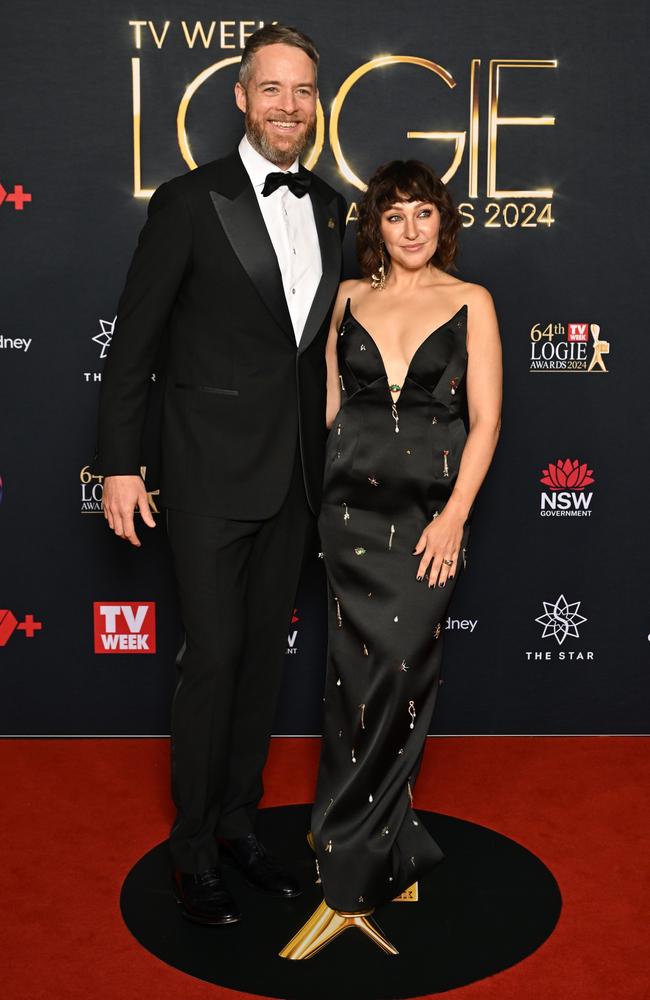
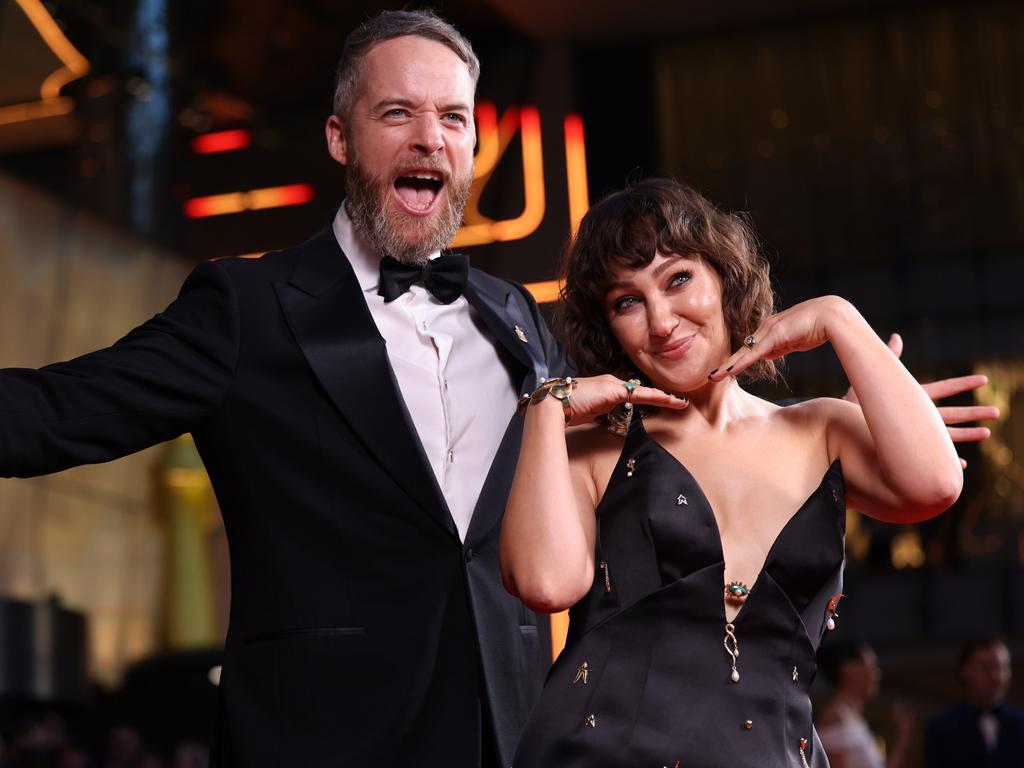
And I know I’m heading into a phase and I can see into the future where, yes, ageing parents, tricky teenagers, health issues, whatever it may be … but the support of those friendship circles, the support of family – and I have an amazingly supportive husband, and that is the thing I’m happiest about – is [what] we all need. And if you’re not getting it from someone else, give it to yourself. I think the term balance is interesting because if you think about balance, it’s always shifting. It’s never just clean. You have never got all your ducks in the row. I laugh because I have “Kit days”, as I call them, all the time. I had one this morning – I was ready to walk out the door, and I dropped a massive splodge of make-up on my top and then the cat pissed on the bed. I hadn’t done the kids’ lunch order. And this is every day. For every person, every working mother, it’s tricky. But I’m also proud of myself and that’s part of growth, going, “Hey, hey, hey, be kind to yourself. You’re doing really well.” That’s taken a long time to get to that point because I am very tough on myself. I don’t think you can kind of get to a stage of output that I seem to be doing without being quite disciplined and hard on yourself. But you have to be kind to yourself, as well.
You started your career as a beauty editor at a magazine. When did you discover your business acumen?
I still feel silly when I’m asked to speak at business conferences or on business podcasts because I do feel like a bit of a fraud in that field. I’ve earnt my stripes, I’m aware of that. But it still feels like I’m a creative. I’m a writer. There was a really distinct moment after I finished breastfeeding [Rudy]. I had launched Go-To a month before I had Sonny [in 2014], then I was pretty much in a pattern of babies, birth, pregnancy, breastfeeding for about four or five years. And finally, you know when you come out of it after the baby is two or so, I was like, “What’s going on? I need to get my sh*t together.” I actually think I say this in the book. I sat around in our board meetings and it would be like, “Oh numbers … This is where Zoë signs out” and I’d start tapping away on my iPad; and I was like, this is not cute anymore. It’s not respectful of the business, the work that’s going into it. I need to be a founder, not just the creative and marketing. I need to understand what’s going on in the business, even the boring stuff. So from then on and moving into our process to sell, it became quite the baptism of fire. I asked all the stupid questions – and I really encourage that, because don’t pretend you know, you’ll never learn that way. I’ve got space [in my brain] for ’90s R&B lyrics, not this stuff. I wanted to learn it and I wanted to be a respectable and respectful founder and do the right thing by the business and the customer and the staff and the team and the shareholders. Everybody.
![‘[On social media] we choose a highlights reel to show what we’re doing.’ Picture: Belinda Rolland](https://content.api.news/v3/images/bin/b3dac3c6808909059745a118eec44ffb)
We had very little money growing up. I grew up in a small town in the Southern Highlands [in country NSW]. We’re all creatives, musicians, artists, and I have somehow found myself in a successful business position and it wasn’t because I did a business degree or an MBA or had a clue about commerce. It was because I learnt as I went and I think, generally speaking, a lot of founders come in creatively. They see a gap and they want to fill it and they have great ideas and that gets you so far. My advice is: always bring in the people that can do the things you can’t – early. A lot of the tendency is to go, “I’ll hire some juniors to help me out,” but I would say hire the seniors, because that’s really going to help you a lot faster. Back yourself, and bootstrap it if you can. And don’t give up your day job, until it’s flying.
What about managing self-doubt and overcoming failure along the way? If I were to characterise you from afar, for instance, I might say: “Zoë Foster Blake, everything you’ve touched has turned to gold …”
That’s orchestrated, right? That’s all been carefully channelled to you to appear that way. This is the whole thing of social media: we choose a highlights reel to show what we’re doing. I pretty much only use it for work, and my cats. But there’s this very dangerous idea of perfection. Of course there have been failures. You’re never going to see them, unless it’s a big public fail. And unfortunately I’m in a position where that could happen. But even then, we’re all human, we’re all fallible. It happens. It’s going to happen again. That’s life – it’s how you get back up; it’s not the failure.
Zoë Foster Blake’s novel Things Will Calm Down Soon (Atlantic Books Australia, $32.99) is out now. The full shoot originally appeared in an issue of Stellar via The Sunday Telegraph (NSW), Sunday Herald Sun (VIC), The Sunday Mail (QLD) and Sunday Mail (SA). For more from Stellar and the podcast Something To Talk About, click here.
More Coverage
Originally published as ‘Of course there have been failures’: Zoë Foster Blake on business, beauty and her latest book








